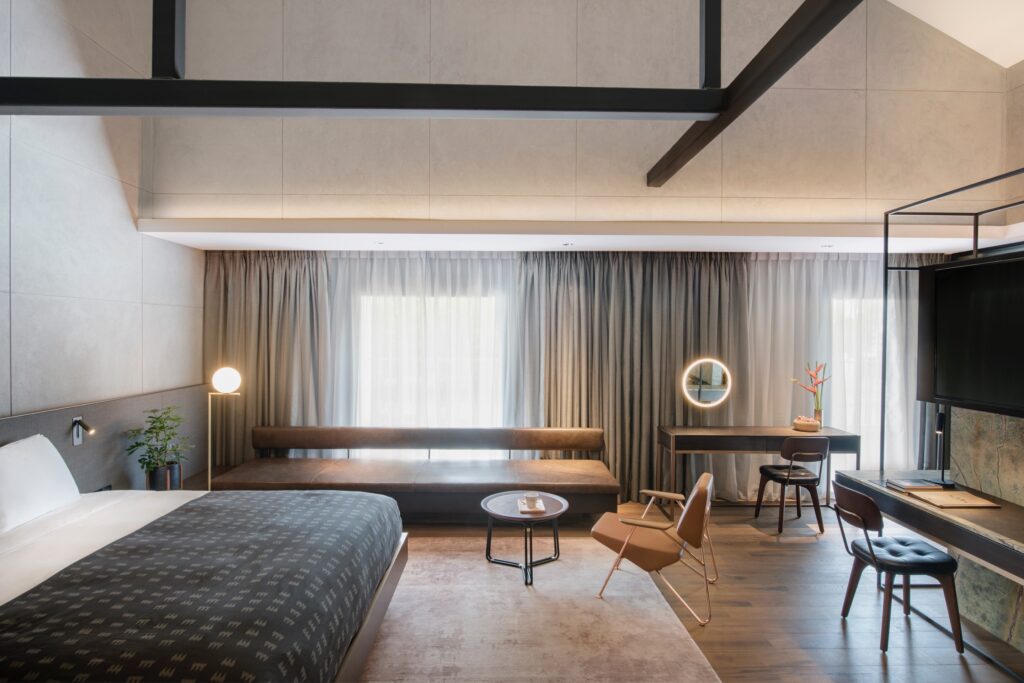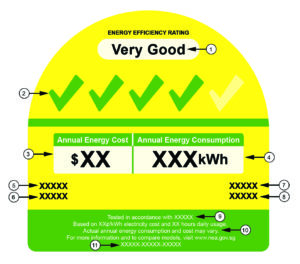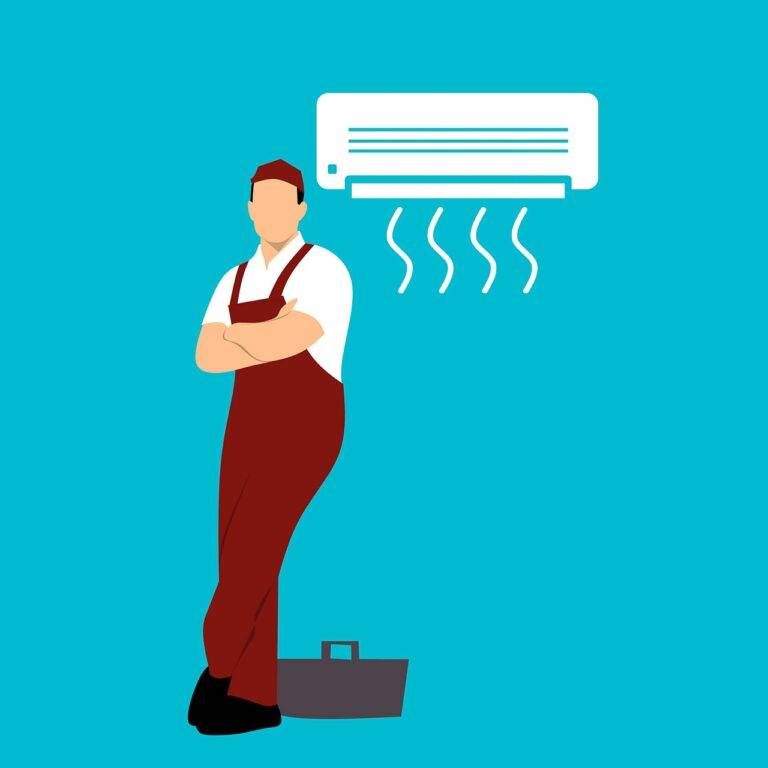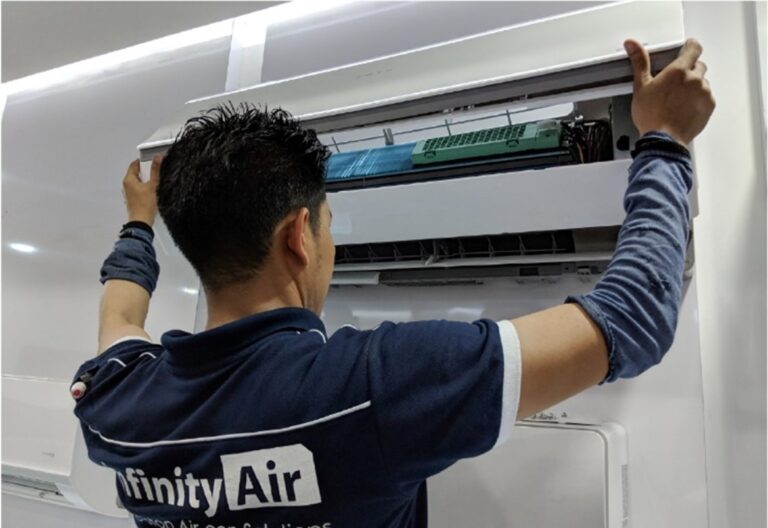IIn this hot and humid country, Singapore, air-conditioners are essential to maintain comfort in our lives. Given that most home air-conditioners generally last between 8 – 12 years, finding a suitable air-con for your home is crucial and requires a bit of research to optimize your investment. Choosing a new aircon can be daunting for first-time buyers, especially when there are so many factors to consider. In this article, we aim to distill all the information into 5 key factors.
Tip 1) Number of Rooms

We first need to identify how many rooms you would like to cool as different setups are required depending on the number of rooms.
One Single Room: A single split wall-mounted air-con system would be a good choice here, where 1 wall-mounted unit is connected to 1 outdoor unit (also known as the condenser unit). Portable air-cons can be a more economic choice here if you have the floor space or are not planning to stay for long though they are not the most optimal option.
Multiple Rooms: For efficient cooling of multiple rooms, we recommend a multiple split system. A multiple split system consists of at least 1 outdoor unit connected to multiple indoor units. For example, a System 3 refers to a system that has 1 outdoor unit that is linked to 3 indoor units.
House with Multiple Floors: For larger homes with multiple floors, a few multi-split systems can still do the job of cooling efficiently. However, they are not the most aesthetic as there will be numerous outdoor units that could affect the façade of your house. There are a few different options for cooling larger spaces but a commonly used option is the VRV/VRF system where one outdoor unit has the ability to power a significantly larger number of indoor units.
Ultimately, you can only decide on the best system for your home after determining the amount of space that needs to be cooled as well as weighing your priorities.
2) Size of the Rooms
An aircon’s cooling ability can be measured in BTU – British Thermal Units, which refers to heat that the aircon can remove per hour. The higher the number, the greater the aircon’s ability to cool the room. As a result, the size of your room determines the type of aircon needed. Here is a simple table to show you how much BTU is required for your room size:
A typical HDB bedroom is about 18 sqm – therefore needing an aircon of about 6200 BTU cooling capacity based on the chart. But do take note that there are other factors such as heat emitted from each person, electrical appliance, lighting (anything that emits heat). The cooling efficiency of an air-con unit may also slowly deteriorate throughout the years depending on the care and maintenance it receives. These are the recommended guidelines, and it is always optimal to get something slightly higher than the recommended cooling load required for unforeseen factors as a buffer.
3) Energy Efficiency Rating – Energy Labels

If you have shopped for electronics previously, these green ticks would look familiar to you. These ticks are a representation of how energy efficient a product is as mandated by NEA. Most air-cons would be between 2 to 5 ticks, and the more ticks it has, the more efficient it will be in reducing your electricity bills. Do take note that in general, the higher number of ticks also relates to a higher price tag for the unit. Therefore, you will have to estimate your usage in the long-run and plan accordingly to maximize your cost-savings to decide on the model that you want.
4) Price VS Value

A good initial installation will save you a lot of money in the long run. Given that air-conditioning is an investment for at least 8 – 12 years, you will want to invest in the right team to install and oversee your system. Make sure your air-con installation and maintenance agent is certified by regulation to avoid and minimize the chances of any complications in the long-term. It will be ideal if they are a Building and Construction Authority (BCA) registered contractor and certified so that you will have peace of mind knowing a professional is performing the job for you. In addition to this, you also will want to consider if the company is outsourcing the installation process or having in-house professionals to perform the task. Most of the time, in-house workers will be able to provide a more reliable and better service as there will be a greater control in quality – that is something that we strongly believe in. Therefore, do take note of these factors as well other than the numbers on the price tag.
5) Other Features/Add-ons That You Might Want
With modern technology, there is potentially a whole lot more functions available other than the normal on/off and temperature control buttons on the remote control. Different air-conditioning systems may have different or unique features, and it is entirely up to you to select your desired features and specifications to cater to your aircon needs. Here are some helpful features or add-ons to look out for:
Wi-Fi-Remote: Want to cool your house first while on your way home? Always worried if you have forgotten to turn off the air-con when you have already left the house? With this feature, you can control your aircon conveniently with a tap on your smartphone.
Dirty Filter Indicator: An alert will prompt you when the filters have accumulated enough dirt that it is time for a cleaning session.
Slide-out Filter: This pairs well with a dirty filter indicator, making your life so much easier when it comes to maintaining your filters.
Air Direction Flow: Having the ability to regulate the direction of your airflow allows you to cool the desired areas of your room better.
Energy Saver Setting: With this mode, it will save you money on your bills by turning your aircon unit on and off according to the temperature the sensors detect.
Extended Warranty: If you ever had something breakdown and went through the trouble, effort and money to get a replacement, you might want to consider this for a peace of mind.
Servicing Contracts: Signing up for a servicing contract usually means savings per servicing as compared to arranging for ad-hoc jobs. Regular servicing of your air-con system also helps to prolong its lifespan and optimize cooling.

